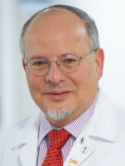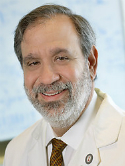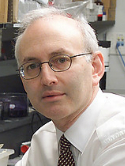Progressive disease following autologous transplantation in patients with chemosensitive relapsed or primary refractory Hodgkin's disease or aggressive non-Hodgkin's lymphoma Journal Article
| Authors: | Kewalramani, T.; Nimer, S. D.; Zelenetz, A. D.; Malhotra, S.; Qin, J.; Yahalom, J.; Moskowitz, C. H. |
| Article Title: | Progressive disease following autologous transplantation in patients with chemosensitive relapsed or primary refractory Hodgkin's disease or aggressive non-Hodgkin's lymphoma |
| Abstract: | To determine the outcome of patients with chemosensitive relapsed or primary refractory Hodgkin's disease (HD) or aggressive non-Hodgkin's lymphoma (NHL) whose disease progresses after autologous stem cell transplantation (ASCT), we reviewed the records of 82 patients with HD and 139 patients with NHL transplanted between 1993 and 2000. Disease progression occurred in 25 patients with HD and 66 patients with NHL, with median times to progression (TTP) of 3.8 and 5.1 months, respectively. Median survival times following ASCT failure were 26 and 7.7 months for patients with HD and NHL, respectively. The second-line international prognostic index (sIPI) and the TTP (before or after 3 months from ASCT) independently were predictive of survival for NHL patients. In addition, treatment with rituximab for patients with B cell NHL was associated with improved survival (median 28.6 vs 4.1 months, P=0.003), independent of the sIPI and TTP. Prognostic factors for patients with HD were not identified. Only two patients, one of whom was among six patients who received second autologous transplants, remain disease-free. The uniformly poor outcome associated with disease progression after ASCT should prompt efforts to assess the feasibility and utility of detecting and treating post transplant residual disease during a minimal disease state, before overt progression. |
| Keywords: | adolescent; adult; cancer survival; controlled study; treatment outcome; aged; disease-free survival; middle aged; survival rate; retrospective studies; major clinical study; disease course; cancer recurrence; salvage therapy; cancer radiotherapy; cytarabine; rituximab; carboplatin; etoposide; melphalan; hematopoietic stem cell transplantation; antineoplastic activity; chemosensitivity; carmustine; ifosfamide; hodgkin disease; b lymphocyte; monoclonal antibody; graft failure; nonhodgkin lymphoma; whole body radiation; feasibility study; drug mechanism; non-hodgkin's lymphoma; lymphoma, non-hodgkin; disease progression; graft versus host reaction; transplantation, autologous; autologous hematopoietic stem cell transplantation; progressive disease; autologous transplantation; hodgkin's disease; humans; prognosis; human; priority journal; article |
| Journal Title: | Bone Marrow Transplantation |
| Volume: | 32 |
| Issue: | 7 |
| ISSN: | 0268-3369 |
| Publisher: | Nature Publishing Group |
| Date Published: | 2003-10-01 |
| Start Page: | 673 |
| End Page: | 679 |
| Language: | English |
| DOI: | 10.1038/sj.bmt.1704214 |
| PUBMED: | 13130314 |
| PROVIDER: | scopus |
| DOI/URL: | |
| Notes: | Export Date: 12 September 2014 -- Source: Scopus |
Altmetric
Citation Impact
BMJ Impact Analytics
Related MSK Work







